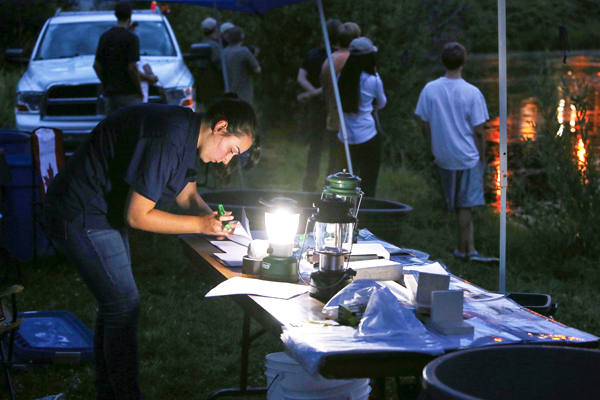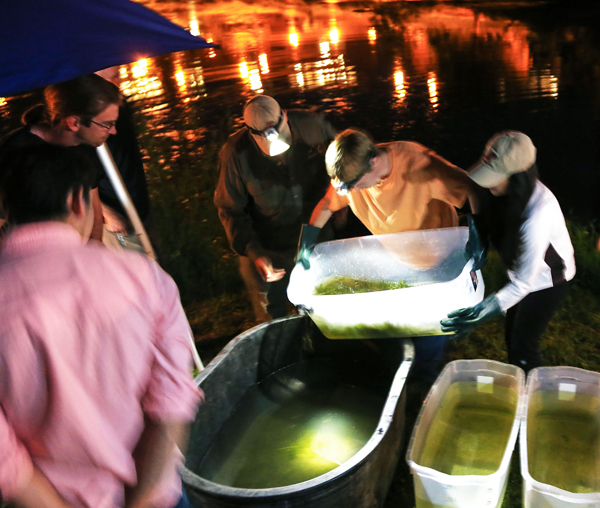
Photos by Jennifer Watton from this year’s electrofishing expedition in June of 2014.
A team of biology students and staff at Trinity Western University went out on two consecutive nights in June 2014 to capture and remove invasive fish in McMillan Lake on the campus. Over 4,500 fish were caught and, of those, only 11 were native to the Salmon River watershed!
The BC Ministry of Environment and DFO have advised the university to try to reduce the numbers of these fish.
The numbers:
Largemouth bass — 3,039 (including 2,400 bass fry)
Sunfish—1,450
Brown bullhead—11
Crucian carp—6
*Northern Pikeminnow—6
Asian Carp—3
*Coho Salmon—2
*Rainbow Trout —1
*Large Scale Sucker—1
*Peamouth Chub—1
Total—4,520
* = native fish
The native fish were released back into the lake.
The bass feed on salmon fry and can easily get into the Salmon River during flooding. The pumpkinseed sunfish create problems for water quality and provide food to maintain a high bass population.
The non-native fish are being analyzed for stomach contents, age, and reproductive status. TWU student Andrew Tung has a $4,500 federal scholarship for the summer and is doing the analysis.
In 2013, a 20-lb carp was the biggest catch. A total of 579 fish were caught over the 2 nights. All but 10 were non-native.
2014 and 2013 Electrofishing gallery
Shock and Awe in McMillan Lake (Trinity Western Magazine, 2014)
Shock and awe in McMillan Lake (Langley Times, Nov. 25, 2013)
Unwanted fish aren’t the only problem. Canada geese have become a big problem in southern B.C. Canadian authorities looking to control Canada geese populations (Vancouver Sun, April 3, 2014)
Other issues
Farming impacts on Langley rivers
Water pipe causes environmental damage
Uncapped artesian wells draining aquifer
Water Sustainability Act
Kinder Morgan Pipeline
Development pressures
Rain/impervious surfaces
Flooding
Damn beavers!
Endangered species
Invasive species
